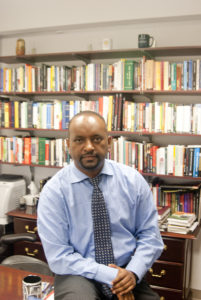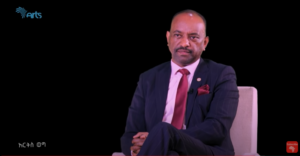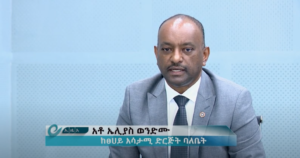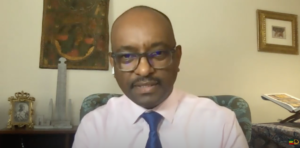PUBLAB PUBLICATION – Publisher Elias Wondimu has a story he likes to tell about the path to publication for jazz great Duke Ellington’s autobiography Music is My Mistress, released by Doubleday in 1973.
Ellington’s editor initially rejected the 500-page tome, an eclectic assortment of observations, scenes, anecdotes, and musings that included a lengthy Q&A that the author conducted with himself, as well as hundreds of photos and hand-written passages on sheet music.
 One might expect an unconventional book from a man whose compositions defied neat classifications. But Ellington’s editor refused to publish the manuscript, until finally the company’s owner stepped in and said the book would indeed go to press — despite the editor’s objections.
One might expect an unconventional book from a man whose compositions defied neat classifications. But Ellington’s editor refused to publish the manuscript, until finally the company’s owner stepped in and said the book would indeed go to press — despite the editor’s objections.
“The publishing industry is controlled by the owners, so the stories we tell are controlled by the owners,” Wondimu explained during a talk at the LARB/USC Publishing Workshop last summer. “I want to be the publisher who says no to the editor and publishes Duke Ellington’s book.”
Wondimu, an Ethiopian living in Los Angeles, knows what it’s like to be silenced — or rather, he knows what it is to be the victim of such an attempt.
In 1994, he was a young journalist presenting a paper at a conference in Michigan when he received word that, back home in Addis Ababa, the government was arresting journalists. Five of his colleagues had been imprisoned. He knew he couldn’t go back and instead chose to remain in the United States, eventually moving to Los Angeles to work as a writer and editor.
Three years later, Wondimu founded Tsehai Publishers, named for his mother and dedicated to recording the untold history of Ethiopia, a nation whose leaders have manipulated their country’s collective narrative and suppressed opposition in order to suit their own political and economic interests.
In 2007, Tsehai became part of the Marymount Institute Press at LA’s Loyola Marymount University, the first and only Black press at a US university. Two years ago, Tsehai launched an imprint called Harriet Tubman Press dedicated to celebrating and elevating Black voices in both the academy and the literary world.
Today, Wondimu is still dedicated to telling the stories of Africa and its diaspora, and to undoing centuries of Black censorship and historical erasure. It’s a mission he approaches with the urgency and devotion of someone whose own story once hung in the balance.
“Stories that are not allowed to be told are important,” he explained. “You have to tell your own story, and if you don’t someone else will. And it will subjugate you, it won’t free you.”
You have to tell your own story, and if you don’t someone else will. And it will subjugate you, it won’t free you. —Elias Wondimu
Born in Ethiopia in 1973, Wondimu became a journalist during a period of heightened political oppression and unrest. In 1974, Emperor Haile Selassie was overthrown in a revolution, which led to a self-proclaimed communist military junta called the Derg taking control of the country. At the end of the Cold War the country was plunged into chaos, and the Derg was finally overthrown in 1991. For the next few years, various factions jockeyed for control. Civil and political rights were swallowed up in the violence.
Wondimu felt he couldn’t idly stand by and wait to see how things played out; he and a friend decided to join the resistance. They procured automatic weapons and made plans to join a guerilla group of fighters, but the friend’s sisters found out and stopped them, Wondimu wrote in a 2016 article. He still planned to set off on his own, however, until a chance violent encounter with security forces.
“I intervened in a beating by soldiers of an elderly man and was myself severely beaten, a rifle pressed to my forehead,” he wrote. At that moment the motorcade of a visiting foreign dignitary passed by, saving his life by mere happenstance. The near-death experience, and the encouragement of a friend, prompted him to take up a pen instead of a gun. “One bullet could stop you for good,” the friend said. “If you write what you are talking about, people could learn something, and they may even know what to do next.”
So Wondimu wrote a political essay. It created such a stir that he once heard random strangers discussing it in a taxi. He had found a calling — one that he credits with saving his life — and joined the ranks of journalists who were constantly at odds with the government. In September of 1994, while Wondimu was delivering a paper at that fateful Michigan State University conference, the government suddenly ramped up its campaign against the press. As his friends were thrown in jail or forced to flee the country, it quickly became clear he couldn’t return. His three-week trip to East Lansing stretched into a 24-year exile.
“The personal costs of my years in exile have been high,” Wondimu wrote in the 2016 article. “On the telephone, I listened to my mother die, and I was unable to return to her side. And I carry the knowledge that my actions have forced my entire family into exile in Kenya, where their safety is more certain.”
Since then, Wondimu has fought relentlessly to tell censored stories, including his own. He couldn’t go home so he came to Los Angeles instead, which was blessed with both a vibrant Ethiopian community and an international magazine, the Ethiopian Review. He worked at the magazine for a couple of years and then took on an additional role as a Chicano Studies editor at the University of California, Los Angeles.
In the meantime, Wondimu had realized that most of the African and African-American authors with whom he worked couldn’t get published in the US. Inspired by the Chicano writers and artists who came together in the 1960s and ’70s to start their own journals and presses, he decided to learn how to publish books.
“When you have a platform, you can grow yourself and you can help the next generation,” he explained. “I said, ‘Ah ha. If I’m not doing it now, I’m not helping the next generation.’”

cover of Wit and Wisdom
He took a class, created a business plan, and ran into his first obstacle: nobody would give him a loan. So he cashed in his 401(k), maxed out two credit cards, and took out a personal loan. He went to the library every day to study the intricacies of books as physical objects, examining every aspect of their development and production, the way Henry Ford did with cars. He visited China to meet with printers and observe their operations.
There were more personal sacrifices to come: a romantic relationship that ended because he dedicated too much time to his press, phone calls that kept him up at all hours of the night, gas paid for with spare change because he was so broke from spending his own money producing books.
“With the financial issues, I had to do the most humiliating things to survive,” he said. “There were many times I wanted to give up. What kept me going was that I never felt I was creating a profession for myself; I always felt I was fighting for others. I’m working for people that don’t even know of my existence.”
In 1997 he established Tsehai Publishers, whose first title, Wit and Wisdom of Ethiopia by Negussay Ayele, was released the following year. Today the press has published more than 60 books under three imprints, and has launched a scholarly journal and conference series. Tsehai seeks to “give voice to otherwise voiceless writers” and to “create an alternative, honest, homegrown narrative of Africa divorced from the cultural bias, value judgments, and historical interpretation and misinformation” that often pervades Western media.
Wondimu gets a thrill seeing Tsehai’s books in stores and libraries, on the bookshelves of friends of friends, and in the possession of other people he’s just met for the first time. One of his books was featured at the de Young Museum in San Francisco.
“I was so proud, this immigrant kid is featured at the de Young,” he said, beaming.
There were many times I wanted to give up. What kept me going was that I never felt I was creating a profession for myself; I always felt I was fighting for others. I’m working for people that don’t even know of my existence. —Elias Wondimu
The lack of racial diversity in publishing has been well documented in recent years. Even as the US’s demographics have changed over the past two decades, the industry remains nearly 90 percent white, according to trade surveys. When Wondimu attends gatherings with the directors of other university presses, he’s often the only person of color.
Wondimu believes his dogged pursuit of quality is what has allowed him to excel in such a homogenous industry. And now that he’s broken through, he believes a vital part of Tsehai’s mission of amplifying the voices of underrepresented communities is to get the members of those communities not just on the page, but involved in the books’ production.
“Story is the most powerful thing in the world,” he said. “Whoever controls the story controls you. Every single country in Africa was European until the 1940s and 1950s. How did they do that? Control the narrative.”
For centuries, European scholars denied African contributions to history, art, and philosophy, even though Ethiopia was home to one of the world’s first printed philosophy books.
Today, this cultural imperialism continues in all kinds of ways. A few years ago, a group of authors in Botswana asked Wondimu to publish their books, despite knowing the US market for them would be small. If the books were published in the United States, the authors explained, the South African publishers would buy them.
Wondimu decided he didn’t want to only publish books in the US and then ship them to Africa. Instead, he would arm African publishers with the skills they needed to produce top-quality products. Now, Tsehai is working on establishing five centers of excellence in publishing in Africa that will be connected to university presses in the US. They’re also tackling the lack of representation in publishing by partnering with historically Black colleges; the goal is for students of color to work on book projects, learn the industry, and gain the tools to fight Black erasure.
“One publisher cannot answer the inequality that has been committed for the last century,” Wondimu explained. “What we can do is train other people.”
In February of 2017, Wondimu’s work was further validated with one of the Ethiopian Crown’s most distinguished awards: the Grand Officer of the Imperial Order of Emperor Menelik II.
His Imperial Highness Prince Ermias Sahle-Selassie Haile-Selassie described Wondimu as, “A national treasure, not only of the United States, but of his native Ethiopia.”
“By preserving history, and particularly by preserving it on such a detailed level, and yet with the full understanding of context, he preserves the national identity of Ethiopians and Africans, and contributes to a greater understanding of Ethiopia and Africa by people outside the continent,” the prince said in a statement.
Earlier this summer, Wondimu received a phone call at 4 a.m. A very prominent person in Ethiopia was calling to tell him he had seen a book from Tsehai Publishers on the new Ethiopian prime minister’s desk.
“Can you imagine that?” Wondimu said, recalling the conversation. “I don’t have the words to express it.”
That was in early July. By September, Wondimu was on a plane to visit his home country for the first time in 24 years.
“It was a beautiful, heart-warming, and long-awaited homecoming filled with the reunion of old friends, family and the Tsehai Addis Ababa team,” the press said in a statement. Wondimu’s father, brother, and sister served as Tsehai’s conduit to Ethiopia even during his exile. His mother passed away in 1997.
Ethiopia has been plagued by corruption, ethnic conflict, economic chaos, and human rights abuses ever since the first Federal Democratic Republic was established in 1991. In recent, years, however, signs of change have emerged.
In 2016, protesters took to the streets to demand an end to human rights abuses. The protests were violently suppressed, but they seemed to indicate that something was shifting in the social landscape.
In February 2018, former Prime Minister Hailemariam Desalegn resigned from the post he had held since 2012, saying he wanted to make way for reforms. He was the first Ethiopian head of government in modern history to step down; the others had died while still in power or been overthrown.
Desalegn’s successor, a charismatic young leader named Abiy Ahmed, has promised political and economic reforms, including an end to internal ethnic conflict. In July, he negotiated the resolution of a long-running border dispute with neighboring Eritrea.
Although he’s happy to see the progress being made, Wondimu said he has no plans to leave Los Angeles. He’s committed to the country and the community that embraced him as an immigrant.
Without it, he said, he never would have been able to realize this “wonderful responsibility” of telling the stories of his home continent and its peoples.
Tsehai is… tackling the lack of representation in publishing by partnering with historically Black colleges; the goal is for students of color to work on book projects, learn the industry, and gain the tools to fight Black erasure.
 JANNA BRANCOLINI
JANNA BRANCOLINI
Janna Brancolini is an American lawyer and award-winning journalist based in Italy. She writes extensively on law and politics, with a focus on democracy, rule of law and human rights. Her work has been published by NBC, CBS, Thomson Reuters-West, the San Francisco Chronicle and the California Journal of International Law, among others. Janna currently edits Kheiro Magazine, an online magazine covering justice in a globalized world, and contributes to NewsMavens.com, a news round-up curated by women editors from top media brands in Europe. She was previously awarded a Fulbright Grant to research freedom of the press in Italy, and has lectured at Loyola Marymount University in Los Angeles and the University of Bologna in Italy.
Elias Wondimu is an Ethiopian publisher and exiled journalist. In September 1994, he left his country to participate the Twelfth International Ethiopian Studies conference at Michigan State University in East Lansing, but his three weeks travel became indefinite. Later that year, he joined the Ethiopian Review magazine in Los Angeles, serving as managing editor for the next six years. In these years, he worked with many scholars, political activists and public intellectuals on issues of local and global interest. Passionate about Ethiopian and African issues, Wondimu saw a void in the American book market. In 1997 he founded Tsehai, meaning “the sun,” named after and dedicated to his mother who had passed away the same year. Building the publishing house, he saw Tsehai not as an end but as a means so that knowledge would be accessible to new generations of readers.






